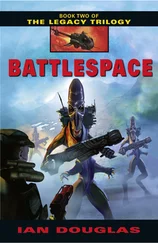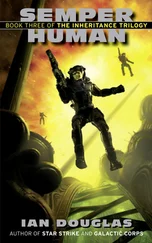1 ...8 9 10 12 13 14 ...20 “You mean the Sh’daar, yes-no?” one of the two small beings in front of him said through the small, silver-badge translation device adhering to her leathery skin just beneath her four weirdly stalked eyes. “We no longer refer to them as masters. . . .”
Koenig was standing with the two Agletsch representatives within a mostly human crowd filling Toronto’s outdoor York Plaza. Thousands of people were in attendance, and many thousands more were present virtually, linked in from home through small robotic drones or teleoperated androids. The function was a diplomatic reception for the Hegemony and Theocracy ambassadors and their staffs, a grand celebration of the new alliance. The Office of Presidential Security had just about gone hyperbolic with collective fits when they’d heard; what, his security chief had demanded, was to stop the Confederation from launching another nano-D strike? If they hit Toronto tonight, they could vaporize most of the USNA government leadership with one precisely placed shot.
The answer had been to redouble both space and atmospheric patrols over North America to make sure nothing got in. USNA High Guard ships were positioned as far out as Lunar Orbit, and Marines were manning long-range planetary defense batteries up at SupraQuito. This reception tonight was important, a means of showing the entire planet that the USNA’s refusal to bow to Confederation tyranny was shared by a majority of Humankind—that it was not simply the squeak of a small and disgruntled minority.
Besides, global popular reaction to the Confederation’s nano strike on Columbus had been overwhelmingly negative. There was a reason weapons of mass destruction had been banned by the Geneva Protocols of 2150, and nano-dissassemblers were especially nasty, taking apart everything they touched—buildings, dirt, trees, children—literally molecule by molecule, then atom by atom. Another nano-D strike by the Europeans might cause wholesale defections from the Confederation.
The Agletsch, Koenig was glad to see, appeared to have sided with the USNA cause . . . though it was always difficult figuring out what the spidery aliens were actually thinking.
“I still don’t understand that, Gru’mulkisch,” Koenig said. “You both carry Sh’daar Seeds. Seems to me that means you’re working for them . . . at least some of the time.”
After twenty years, Koenig was only just beginning to be able to tell one of the two liaisons from the other—or to pronounce their names. The other one was Dra’ethde.
Known popularly as “spiders” or “bugs,” the Agletsch were actually very little like either. Each possessed an unsegmented oval body a bit more than a meter across, supported by sixteen jointed limbs like slender sticks. The rear legs were shorter than those in the front, the bottom-most pair little more than sucker-tipped stubs, while the upper limbs serving both as legs and as manipulators were long enough to hold the body semi-upright, so that the tiny head was a meter and a half off the ground. When she wanted to move, she could do so quickly, tipping her forebody forward to lift the hind leg-stubs off the ground. The rotund body was covered by tough, flexible skin, not chitin. The reddish skin was covered with gold and blue reticulated markings and by the Agletsch equivalent of tattoos—swirls and curlicues picked out in gold and silver. The four stalked eyes were gorgeous—black Y-shaped pupils set in rich gold.
Both of the Agletsch speaking with Koenig were female, of course. The males of the species were small, brainless tadpoles attached like leeches to the female’s face.
And somewhere within those flat, ovoid bodies, Koenig knew, were minute electronic implants that stored the Agletsch’s sensory impressions, and beamed them to a receiver when the range was short enough—probably a few hundred thousand kilometers. Sh’daar Seeds, as these poorly understood devices were called, also apparently allowed the Sh’daar to talk with their minions—and served as the glue that bound the Sh’daar Collective together, making the whole vast, sprawling thing work.
“As we have stated in times past,” Dra’ethde pointed out, “the Seeds do not work in the manner in which you seem to believe. Some of us work within the Collective, yes-no? Others do not . . . even if we by chance carry within our bodies the Masters’ . . . the Sh’daar Seeds.”
“If no Sh’daar are nearby,” Gru’mulkisch added, “the Seeds are useless to them.”
Koenig considered a sharp reply, but decided to drop the issue. Humans tended to think in terms more black and white than did the Agletsch, who traded in information among hundreds of galactic species and seemed able to at least comprehend the psychologies of myriad alien worldviews. They seemed friendly and agreeable . . . but sometimes it was obvious that they simply didn’t think the same way as humans. The fact that they referred to the Sh’daar as Masters tended to make humans suspicious, and the various human intelligence agencies looked at them with something approaching xenophobic paranoia.
“Many of us believe,” Koenig said carefully, “that those Seeds are what tie together the Sh’daar Empire.”
He was being deliberately provocative. For years, in fact, Alexander Koenig had argued against the popular notion of a Sh’daar empire, holding that the word suggested far more cohesion and organization than was apparent through scattered encounters with Sh’daar clients over the past few decades. Koenig understood the Sh’daar threat, understood it quite possibly better than any other human alive. He’d been the admiral in command of the battlegroup that threatened the Sh’daar homeworlds in 2405. And he believed that he understood their one fundamental, crippling weakness, the flaw that had let human forces beat their forces time after time.
The Sh’daar Collective was, to be blunt, just too freaking big. That was the secret.
“The Sh’daar do collect information . . . what you call military intelligence through their Seeds,” Dra’ethde admitted. “But . . . your ambassadors and diplomatic staffs, they do the same within the nation-states in which they are stationed, yes-no?”
“Any intelligence which the Seeds provide the Sh’daar,” Gru’mulkisch said, “is quite minor. After all, the Agletsch charge for major pieces of data.”
Koenig realized that the spidery alien had just made a joke . . . and quite a human one at that. He was impressed. Humor was quite a difficult concept for many nonhuman species to understand, much less master.
“What then have you discovered?” Dra’ethde asked. “What about the together act of the Sh’daar?”
“Quid pro quo?” Koenig asked. It was a term that the Agletsch loved, and which fit well with their trade in information. This for that.
“Of course. What do you want to know?”
Koenig had been giving a lot of thought to what question he could ask. It had to be relatively low level in terms of import . . . what they called first-level compensation. More critical information—eighth level, say—could be quite expensive.
“Will the Sh’daar use you or another client species as their representatives when they come to Earth? Or will they come to Earth themselves?”
“Almost certainly they will send servant representatives,” Dra’ethde told him. “The Sh’daar have not been seen . . . in the flesh, I believe is your term, for many tens of thousands of your years. However, those representatives will no doubt have a direct communications link with their Masters.”
“That’s good, because if they came themselves, we’d need to lock up our friend Gru’mulkisch, here, to keep her Seed from dumping.”
It had happened once before, when the star carrier America had passed close to a va Sh’daar base at Alchameth, a gas giant in the Arcturan system, and data stored in Gru’mulkisch’s Seed had been transmitted to the enemy. That was the reason human intelligence services were so cautious when it came to Agletsch in human space.
Читать дальше












